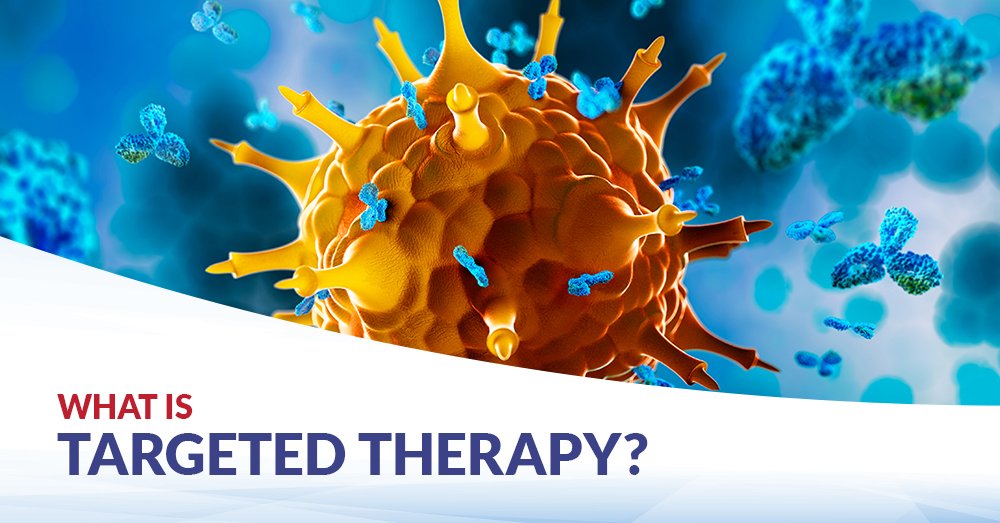What is Targeted Therapy?
Targeted therapy is a type of cancer treatment that targets proteins that control how cancer cells grow, divide, and spread. It is the foundation of precision medicine. As researchers learn more about the DNA changes and proteins that drive cancer, they are better able to design treatments that target these proteins.

What are the types of targeted therapy?
Most targeted therapies are either small-molecule drugs or monoclonal antibodies.
- Small-molecule drugs: are small enough to enter cells easily, so they are used for targets that are inside cells.
- Monoclonal antibodies: are proteins that bind to specific targets of cancer cells but not to normal cells. Most of these use an intravenous line.
Mechanism of action of targeted therapy?
Hormone receptor action: inhibits the growth of hormone-sensitive tumor cells (these cells need hormones to grow). This therapy is applied in the treatment of breast cancer and prostate cancer.
Inhibition of the signaling pathway: blocking the activity of a molecule involved in the signaling process that causes proliferation and growth of tumor cells. One such drug, Temsirolimus, has been approved for the treatment of renal cell cancer.
Manipulating gene expression reduces the function of proteins that control gene expression at the DNA level.
Promotes the "programmed death" cycle: the drug affects cancer cells causing them to "programmed death".
Apoptosis is the body's way of getting rid of unnecessary or abnormal cells while cancer cells tend to avoid 'programmed death'.
Inhibitors of angiogenesis: blocking the growth of tumor feeders such as Bevacizumab (Avastin).
Cytotoxicity of cancer cells: Monoclonal antibodies bind to radiopharmaceuticals or toxic chemicals, making them easily absorbed into cancer cells and causing cell death.
In what cases is targeted therapy indicated?
Each type of cancer will have an appropriate target drug.
Some cancers such as lung cancer, colorectal cancer, breast cancer....have to undergo genetic mutation testing to decide whether the patient is suitable for targeted treatment and suitable for the drug. any.
What tests are indicated prior to targeted therapy?
Some cancers must have a genetic mutation before selecting a targeted treatment. Genetic mutation detection tests are based on molecular biology and/or immunohistochemistry (mutant protein product detection) methods.
- Molecular biology method: most of these methods to detect genetic mutations are based on PCR principle. The modern new gene mutation detection method applied is the Next Generation Sequencing method.
- Immunohistochemistry method: based on antigen-antibody principle to detect mutant protein products. This method is being applied to determine HER2 status in breast cancer and stomach cancer...
Source: cancer.gov